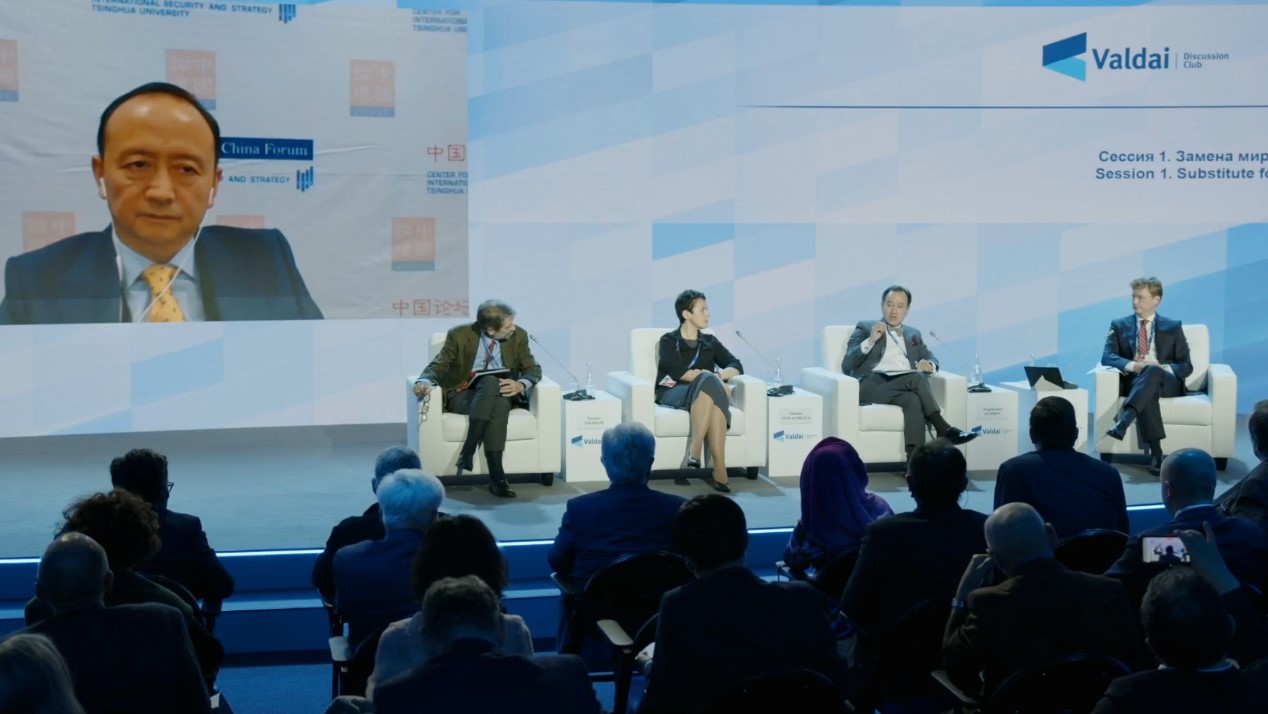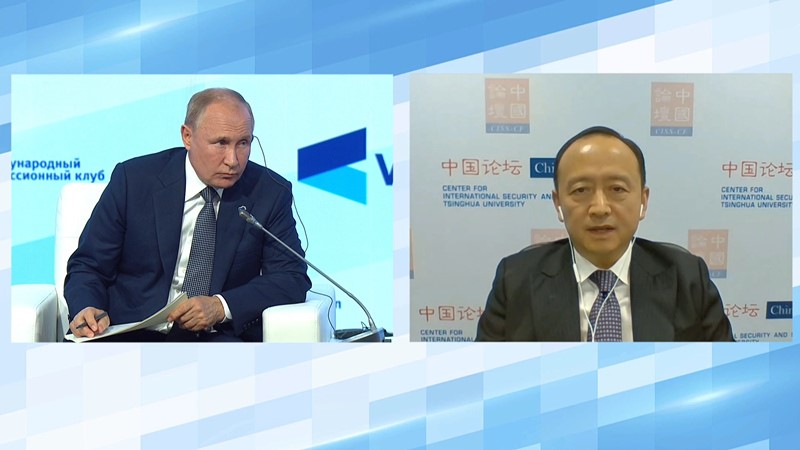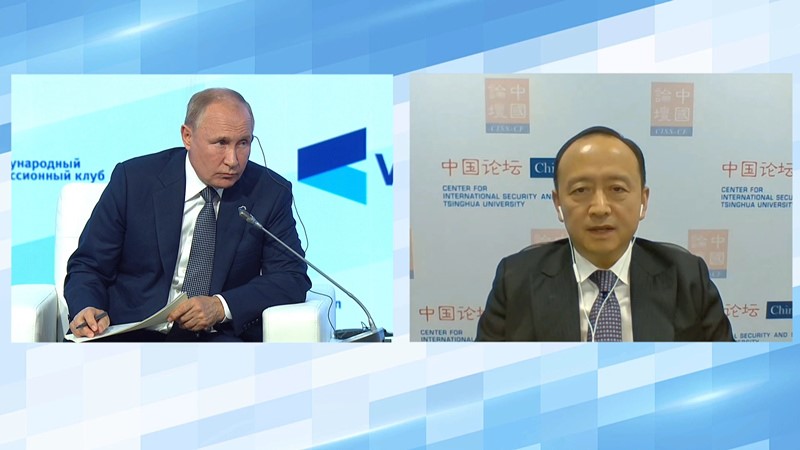The 18th Annual Meeting of the Valdai Discussion Club, titled “Global Shake-Up in the 21st Century: The Individual, Values, and the State” was held in Sochi, Russia, on October 18-21. The gathering brought together more than 140 participants from over 60 countries for in-person and online sessions on topics such as “Substitute for a World War or a Prelude to it?” “The Age of Pandemic: Year Two. The Future Is Back,” “The Quarantines and Their Repercussions: How Will People’s Fears Affect Humanity?” “A Closed Society and Its Friends. Who Needs Freedom and Why?” “The Environment: Russia’s Response to a Common Challenge,” “What to Fight for? Intellect as the Prime Object of Competition in the 21st Century,” and “Russia as a Solution. What Did the Shocks Teach Russia and How Is This Useful to the World?”

The 18th Annual Meeting of the Valdai Discussion Club
ZHOU Bo, a fellow at the Center for International Security and Strategy (CISS) of Tsinghua University and a China Forum expert, delivered a speech and took part in the discussion in Session 1 of the event themed “Substitute for a World War or a Prelude to it?” on October 18. The session was moderated by Andrey Sushentsov, Program Director of the Valdai Discussion Club and Director of the Institute of International Studies at MGIMO University, and featured speakers including Celso Amorim, former Foreign Minister and Defense Minister of Brazil; Tsogtbaatar Damdin, member of the Parliament of Mongolia and former Head of the Mongolian Delegation to the OSCE Parliament Assembly; Thomas Graham, Distinguished Fellow at the Council on Foreign Relations; and Oksana Sinyavskaya, Deputy Director of the Institute for Social Policy at the National Research University Higher School of Economics.
In his speech, Zhou Bo shared his insights into the “extreme competition” between China and the United States, predicting that when the former overtakes the latter as the world’s largest economy in terms of GDP around 2030, the influence of Western democracy will deteriorate to its lowest point; as for China, it will always respect different civilizations, social systems, cultures and religions, with no intention to export its model of governance and development.
According to Zhou Bo, there are three dimensions of the divide we are facing today: First, with the rise of anti-liberalism and the return of nationalism, internal divisions and crises are running through the West; second, the US is suffering from unprecedented divisions on social, racial, gender and economic issues; and third, the Western alliance that Biden pledged to strengthen will continue to be shaken by internal divisions.
In response to the keynote question of the session—is the pandemic a “substitute for a world war or a prelude to it”—Zhou Bo answered that the world is not moving into a new world war, nor is it in the prelude to it, and that neither Beijing nor Washington wants conflict or war. However, the China-US competition is bound to intensify in the coming years as the US sees this as its last chance to take down a rising power. Yet there is no guarantee that it will succeed: the rise of China is so integrated with the current international system that it has vowed to become the defender of the existing international order. Therefore, the US crackdown on China will inflict pain not only on the international system but also on America itself.
Zhou Bo concluded by pointing out that the world is undergoing unprecedented changes—the unstoppable global shift of power from West to East, in which China will take up a central role.

This year, as in the previous years, President Vladimir Putin attended the Annual Meeting of the Valdai Discussion Club to deliver a speech and answer questions from the participants. In response to Zhou Bo’s question about the potential role of the Shanghai Cooperation Organization (SCO) in the reconstruction of Afghanistan, Putin highlighted the significance of relevant efforts within the SCO, including allocating the necessary resources and facilitating conditions conducive to ensuring stability in the country. However, he pointed out that it was the NATO countries fighting in Afghanistan for 20 years that bear primary responsibility for what is happening there. The first thing we should do is to unfreeze Afghanistan’s assets so the country could begin to tackle urgent social and economic challenges, Putin said.

